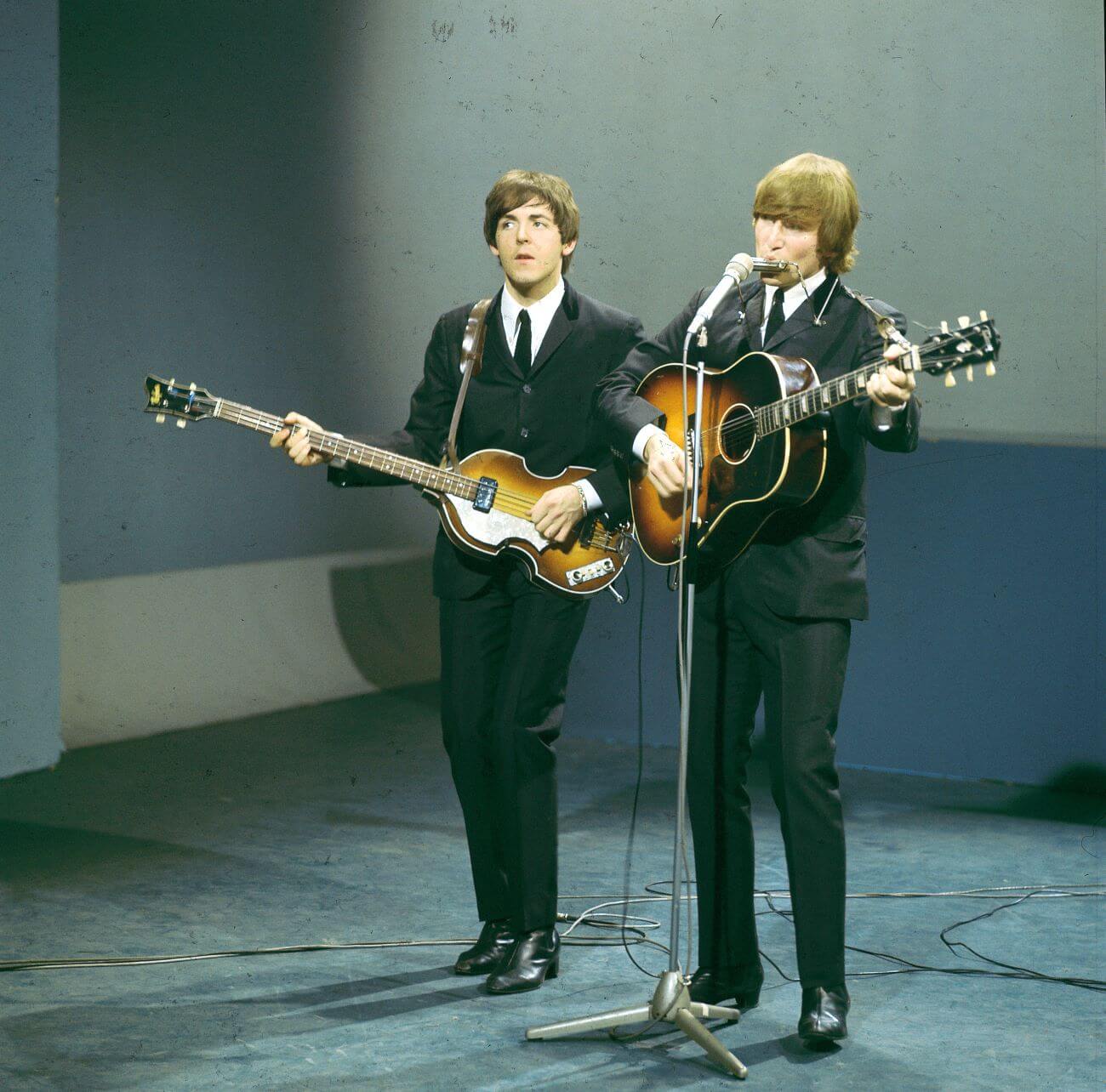
John Lennon’s Reaction to Paul McCartney’s ‘Daft’ Idea About a Beatles’ Concert Hinted at the Band’s Demise
Several years after The Beatles stopped touring, Paul McCartney pitched a new idea for concerts to John Lennon. Touring had become a near impossibility for the band; they were too popular to even feel safe on stage. Because of this, McCartney devised a way for them to fly under the radar. When he pitched the idea to Lennon, though, his bandmate laughed in his face. This might have signaled the end of the band.

John Lennon rolled his eyes at a concert idea from Paul McCartney
The Beatles stopped touring in 1966 after several chaotic years on the road. A few years after that, McCartney admittedly missed live performances. He wanted to find a way to do it, even though he knew it was impossible to tour as The Beatles.
“Before John was leaving the Beatles, I was lying in bed at home one night and I thought we could get a band together, like his Plastic Ono Band,” McCartney told Melody Maker in 1971 (via Beatles Interviews). “I felt the urge because we had never played live for four years. We all wanted to appear on a stage but not with the Beatles. We couldn’t do it as the Beatles because it would be so big. We’d have to find a million-seater hall or something.”
McCartney thought they could perform at a small venue under a different name without any advertisements or fanfare. Lennon disagreed.
“I wanted to get in a van and do an unadvertised concert at a Saturday night hop at Slough Town Hall or somewhere like that,” he said. “We’d call ourselves Rikki and the Red Streaks or something and just get up and play. There’d be no press and we’d tell nobody about it. John thought it was a daft idea.”
The disagreement between John Lennon and Paul McCartney hinted at the band’s demise
McCartney had this idea while The Beatles were still together, but the anecdote hints that trouble was already brewing for the band. Lennon was already performing with the Plastic Ono Band, indicating that his interest in the band was waning.
It also showed that their visions for the group were completely separate. McCartney wanted to find ways for the group to survive. He was dedicated enough to them to perform practically anonymously, showing his love of the band and their music. If they weren’t advertising themselves as The Beatles, they wouldn’t have made nearly as much money off the concert.
Lennon, on the other hand, didn’t want to see evolution in the group. He didn’t want to push certain creative envelopes because he was already taking steps away from the band. In hindsight, it’s clear that they were destined to break up.
Lennon doubled down on his disagreement
After the publication of McCartney’s interview, Lennon wrote a letter to the magazine in response. In it, he scathingly addressed a number of topics, including McCartney’s idea for a concert.
“In fact we’ve BEEN DOING what you’ve said the Beatles should do,” he wrote. “Yoko and I have been doing it for three years! (I said it was daft for the Beatles to do it. I still think it’s daft.) So go on and do it! Do it! Do it!”
Lennon might have been right. Even if The Beatles had called themselves Rikki and the Red Streaks and performed at a town hall, it’s practically inevitable that the news would have leaked out and caused pandemonium.


